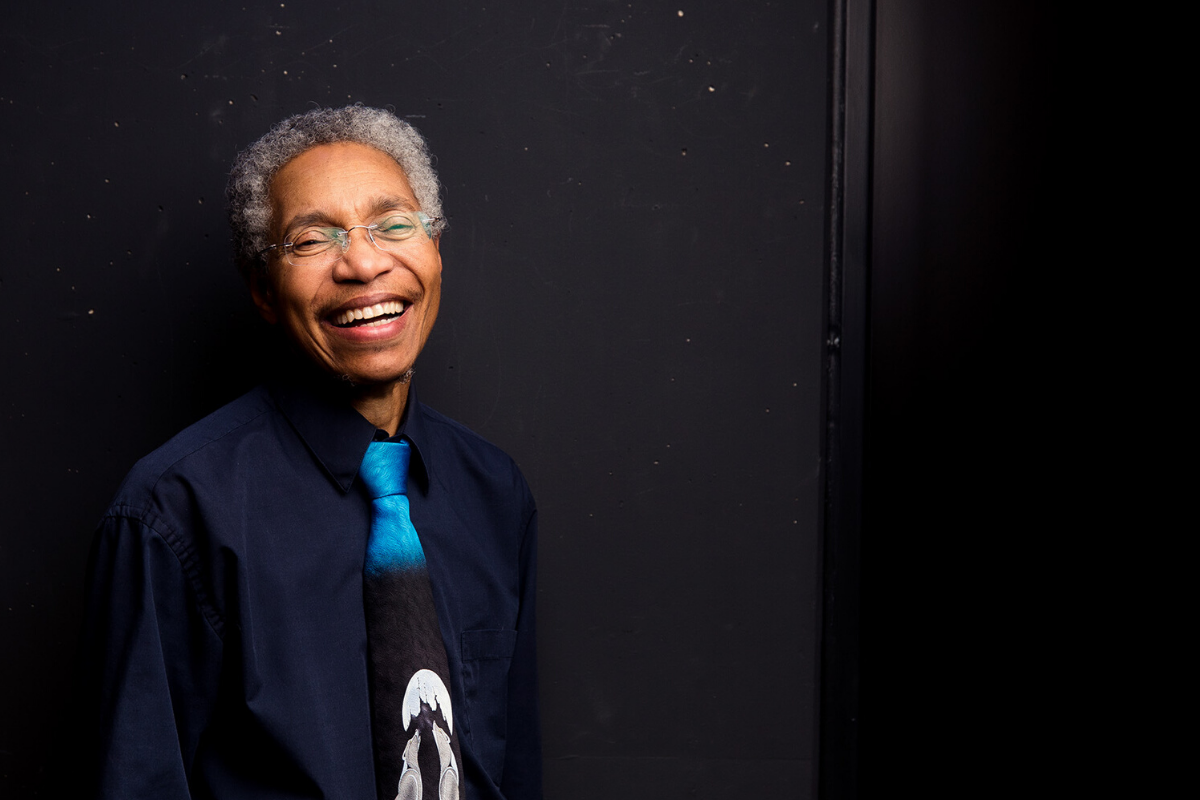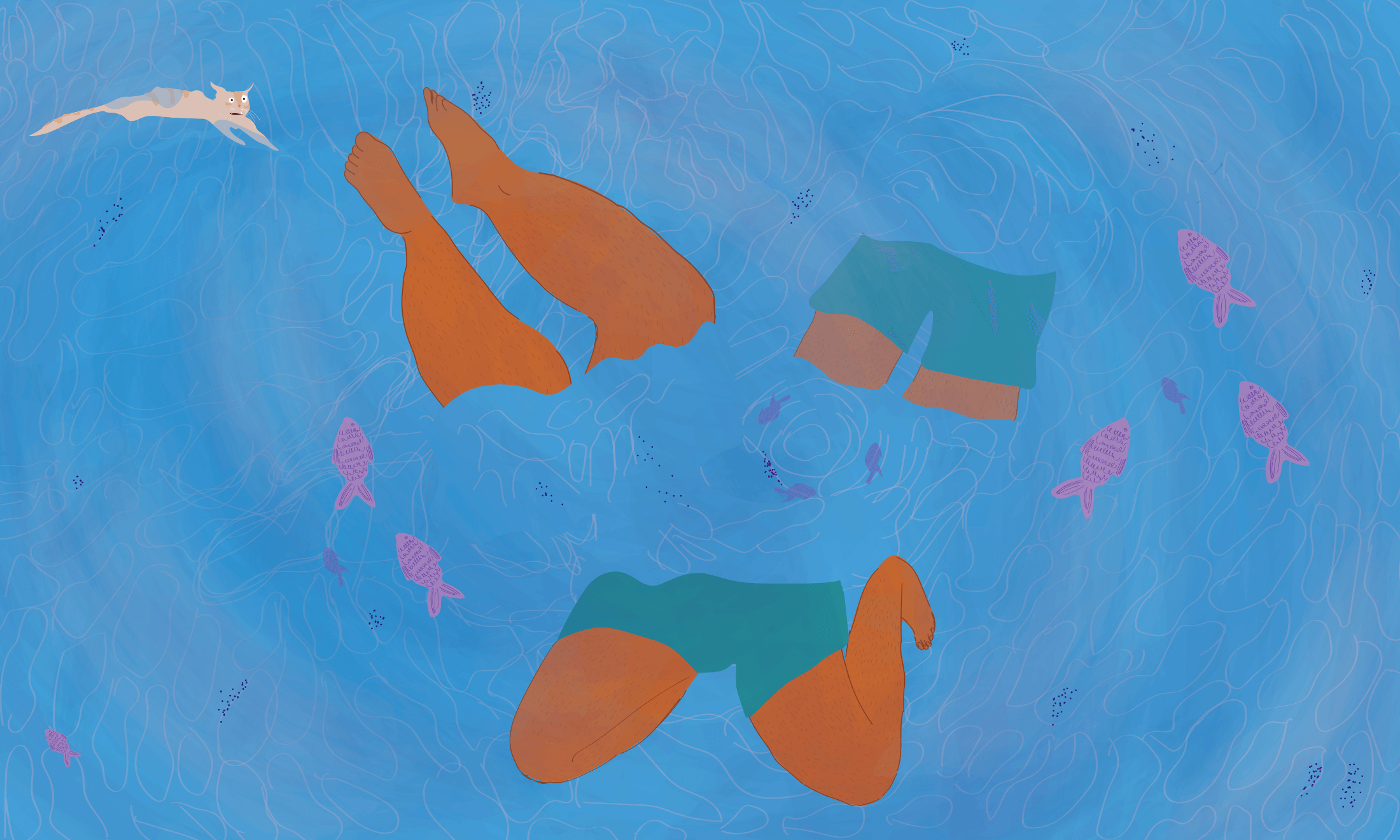
Photography via We Care A Lot PR
Glenn Copeland is a type of musician we rarely get to see. His music is ethereal and explores genre with fluidity. Known professionally as Beverly Glenn-Copeland, his output has always been ahead of its time, yet has flown under the radar. However in 2015, respected Japanese audiophile Ryota Masuko requested the remaining copies of Glenn’s work and sold them – Ryota’s interest sparked a worldwide wave of intrigue in Glenn’s work. As a result, the records – Keyboard Fantasies (1986) and Primal Prayer (2004) – received global recognition three decades after their initial release and both were reissued within two years of each other. This led to Glenn returning to stage last year at 74-years-old, for the first international tour of his career.
As a black transgender man, coming of age long before conversations around trans identities were part of mainstream discourse, Glenn’s life has been challenging. And yet, when I gave him a call on Skype last month, he spoke warmly about his seven decades on earth, including: his Buddhism, his wonderful wife Elizabeth and – of course – his music.
“I never wrote music with the idea that it was ever gonna be heard, I wrote it because I needed to”
– Glenn Copeland
Born in 1944, Glenn had an idyllic experience of Philadelphia that many people of colour did not share: one of multiracial harmony. In 1957, a man from Glenn’s mother’s quaker group found an acreage of land and found an architect who built homes intentionally for black, white and Asian families to live in. It’s not surprising then, that his music holds global energy, with soundscapes inspired from countries and cultures all over the world. “Most of us are very much influenced by our immediate environment and mine from the age of eight onwards had people of all races in it,” he tells me.
From 1961, Glenn attended McGill University in Montreal, studying music. He was a non-heteronormative target (he says it was not until 1994 that he understood he was transgender – it was 2002 when he publicly announced this), and so his experience was one of isolation. He was also in a same-sex relationship, despite it being illegal under Canadian law at the time (conversion therapy and electro-shock therapy being very common). His frantic parents forced him to see a physician and when he realised what was happening he says he “fled out the front door – I came within a hair of being in a mental institution.” Despite this, in the forthcoming documentary about his life, Keyboard Fantasies, he speaks with understanding of his parents’ actions, due to their genuine concern and a lack of understanding at the time that homosexuality was not an illness.
He dropped out, moved to Toronto and worked on children’s TV shows such as Mr. Dressup and Sesame Street. He still made time for writing music for adults during this time, though his songs did not receive much of an audience at the time. Though his earlier music had been rooted in classical sounds, in the early 80s Glenn discovered computers. He was fascinated by the wild sounds he could create. Living north of Toronto surrounded by deer, cougars and bears, Glenn often speaks of how nature inspires him and you can hear this in Keyboard Fantasies. At that time, he sold roughly 50 of his 200 self-released copies.
Yet in the last three years, Glenn’s music has found a new audience: millennials. He draws both his bandmates and a large majority of his listeners from this demographic. It appears, he says, that his music resonates with them. “Younger listeners can access everything with a click,” he tells me, “So of course with a click, you can hear music from all over the world.”
I asked how he felt regarding his music for adults not receiving a large audience until later in life. “I never wrote music with the idea that it was ever gonna be heard, I wrote it because I needed to,” he answers. “Now it feels surreal and it challenges me because I am very happy by myself.” Glenn is an introvert; he is contented, he says, by his quiet life with his wife, surrounded by nature. “I guess when I am in this kind of environment, it is quiet enough for me to hear what the Universe is saying to me.”
Faith is important to Glenn – he found Buddhisim in the 1970s. His music seems charged through a higher power; I’d describe it as “Mother Nature’s anthem”. When he tells me of the near-death experience behind Primal Prayer this feeling started to make sense.
“We all bleed and we all want love and to feel safe and we all want to live on a planet that is going to continue to exist”
– Glenn Copeland
“My intestines had suddenly flipped into a knot,” Glenn explains of the incident. “50 percent of the people that this happens to die. Someone from my Buddhist sect arrived and started chanting in my hospital room. Seconds later a nurse came in and told me they would operate the next morning, I told her I’d be dead by then and I was rushed into emergency surgery.
“When I really came to, I had this feeling that I had been with something that was profoundly loving and an almost visual experience of love. That translated into a series of songs that came out really fast. I think the songs were sent to me to teach me and encourage me”.
Glenn is now in good health, touring and not on any medication. His aura is radiant and he seems to always be smiling. When I listen to him talk I am comforted by how content he seems with the experiences of becoming an elder and the changes that happen physically and emotionally during this time.
His music has such a continent-spanning sound and flows seamlessly through folk, jazz, world, classical, new-age, minimalist ambience and negro spirituals (the last a lovely dedication to his mother, who sang these to him during his childhood). I ask him what his favourite song from the album is. “My two favourite songs are the first and the last,” he answers, “‘La Vita’ and ‘A Song and Many Moons’. I find it interesting that they are bookends. It was an internal journey for me, from one end of the spectrum of my roots to the other. My musical roots but also my DNA roots.”
“Showing up here is no accident. If you showed up here now, I don’t believe your purpose was anything other than to encourage everyone that we can overcome our suffering”
– Glenn Copeland
I’m curious if Glenn has any sage advice for people like me in their 20s or 30s, who may feel a little lost regarding their purpose in life, given his own experiences. He takes a moment to reflect on the question. His eventual response clearly aligns with his Buddhist practice. “The first thing I would say is that from my perspective, showing up here is no accident,” he says, “The next thing is that suffering is part of the course. So, if you showed up here now, I don’t believe your purpose was anything other than to encourage everyone that we can overcome our suffering.”
Glenn speaks openly about how he feels a calling to support millennials and younger generations. They see him as an elder and he takes up the role with pride. He has also expressed concern for the fate of the planet. I ask him how he feels we could bridge generational divides, in order to face these challenges in a unified way: “Your generation has been doing it because of your ability to talk to people all around the world in an instant,” Glenn says, “We all bleed and we all want love and to feel safe and we all want to live on a planet that is going to continue to exist.”
“My generation went through a period after we grew into our thirties where the world moved faster and the dollar became God. It was a trainwreck waiting to happen, and now the trainwreck is happening”
– Glenn Copeland
He says of his own generation: “We went through a period after we grew into our thirties, the world moved faster and the dollar became God. It was a trainwreck waiting to happen and now the trainwreck is happening. My wife Elizabeth has been aware of what has been going on since she was about five – she was trying to make a difference since she was six. She represents how, in every generation going back hundreds of thousands of years, people have been aware of what the earth requires from us – we just lost sight of it. Now your generation has picked it up in a big way. Our whole purpose is just to help and get behind you and talk to people our own age and spread the word. To come back from pain day after day with the belief that we can make a difference – that is what your generation has offered to us all, and we are deeply encouraged in thought, speech and action.”
I can see why people from my generation are so thankful for Glenn – instead of calling us selfish or sensitive he calls us strong, hopeful and encouraging.
As the conversation ends, Glenn asks me to try and find a way to work a message for his wife into the feature: “I’d like to give my personal thanks to my wife Elizabeth. To thank her for all her love and support, emotionally, financially and in every single way that you can think of.”
Elizabeth is, in many ways, an artist herself. Her book, Daring to Hope at the Cliffs Edge, is an epic poem that “gives voice to the Earth and its history — sounding deep alarm at the consequences of ignoring the ever-increasing and dire cries of our planet.”
My call with Glenn leaves me feeling more optimistic about my own life. Both he and his wife actively support people of all generations in creating a better world for us all. And as Glenn and I reach the end of our conversation, we give each other thanks, agreeing that the meaning of life is, as he puts it: “To be continually learning, seeking to become a happier person, just because we are alive. Celebrating being alive.”
‘Keyboard Fantasies: The Beverly Glenn-Copeland Story’ is premiering in London 2 and 3 November, at the Barbican and the Castle Cinema as part of Doc’n’Roll Film Festival. He tours Europe this month, find the dates here.









